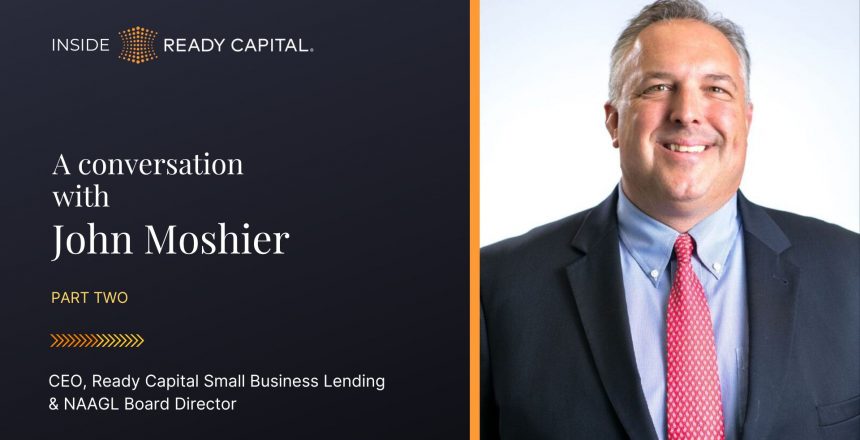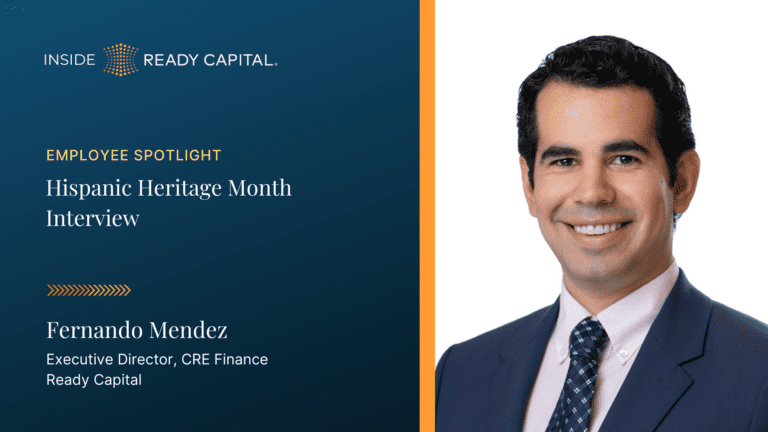With small business growth and success so critical to our national economy, do you have any insights for borrowers and small business brokers who want to not just survive but prosper?
I think we’re in a bit of a shift. We’re starting to see a little bit of pullback from raising rates. Maybe a quarter percent there, a quarter percent in other places, but for the most part I think we’ve hit that critical mass. So, let’s compare to this time last year: A small business wants to buy another small business or a building. The cost to financing has gone up with interest rates rising in the last year. The $1 Million building a business was purchasing last year should translate to a lower value as the cost to finance is absorbed in the price of the acquisition cost. So there’s a little bit of a psychological shift from buyers and sellers. What the seller thinks the value is versus the buyer trying to keep the margins at an appropriate level to continue to operate their business, not have to pass the cost on to their clients, etc. We’re in this figuring-it-out stage.
We enjoyed low interest rates for so long. We can’t survive as a country on zero percent interest. But what goes up will come down. If you want to get into business or buy a business, expand a business, do it. Just think about all the resources you need, what it’s going to cost, and work with your advisors; accountants, attorneys, and business planners. Then, talk to a trusted business lender. I say that because not all small business lenders are created equal. Not all lenders will take the time to listen to your story and ask probing questions and ask about your success. They don’t all ask why are you doing this? Why do you want to borrow all this money that you’ll have to pay back when you’re making money now? That’s a valid question.
In 2015, you made the move from National SBA Segment Manager at Key Bank to President of Small Business Lending for Ready Capital. What did the move from bank to non-bank lender mean to you?
It gave me the opportunity to run my own company. And it gave me a little bit more flexibility in the types of loans that we were doing. Because we are not a federally regulated entity and are non-depository, it gives us more flexibility in risk-based decisions. Some banks are also bound by geography or industries they can or can’t lend to – or won’t lend to – those are the gaps we can fill. Examples are gas stations and convenience stores(C-stores). We do a good job of mitigating the risk whereas a bank might have some kind of capital requirements that do not make that loan profitable.
Other industries where we can fill the gap are restaurants, hospitality, and industries that don’t have a lot of collateral associated with them. Another example is a dentist or other doctor who wants to buy a practice a couple of years out of med or dental school. There are barriers to owning a business and a non-bank SBA lender can take on a little more risk to help people launch their practices.
What’s your leadership philosophy?
I believe that people are what make an organization successful. You can’t skip steps. There are a lot of great ideas. It’s the implementation and execution that separates leaders.
Also, it’s OK to thank your employees for working hard. They have other options out there. Be kind to your people. As a leader, you should know what people’s contributions are. I don’t care if it’s someone who makes sure the coffee pot is refilled every day. It gets poured how many times a day so that other people can do their jobs effectively. When people have pride in what they do, at any level, it adds to the overall success of the process. I’m also very involved with the Senate and House Small Business committees. There are philosophical differences sometimes. We try to keep the ideology out of it. The value-add is coming in and having thought leadership conversations with the Senate Small Business Committee Chief of Staff and other members. They have a million things going on.
One recent example was a proposal that would strip out a lot of the risk oversight of how loans are underwritten, thinking it’s going to make things easier. In reality, the process we have in place requires the lender to ask questions that help the borrower reflect on: “Is this good for me and my small business?” This protects them and the U.S. taxpayer. We’re running on a zero-subsidy model right now. This is risk management. Running, starting, and maintaining a small business is not easy.

Can you share some of your favorite small business lending stories from your time at Ready Capital?
Back in 2016, I got a call from a friend: “I’ve got this guy who wants to buy a golf course outside of Oklahoma City. He’s a PGA pro, lives in Dallas, but he’s probably more geared toward the business side of golf.”
The golf course was being run by a developer who didn’t have a lot of expertise. So, we evaluated the borrower’s experience and lent him the money. To be able to talk to him today and say: “Hey, Mike, could you meet me in North Carolina? There’s a veteran out there who’s suffering from extreme PTSD and he’s picked up golf. Would you mind giving him a lesson?” He says “absolutely.” And he’s running a very successful business snow. There’s that whole give-back. It’s more than just a business transaction.
There was this other guy who owned Urban Air in Cleveland. He was a retired banker himself with millions in net worth. He said “This is my second location. The bank isn’t going to finance it.” I gave him talking points to go back to his bank. It was a timing issue. He came back to us to get the deal done. This is relationship lending to a tee. For small businesses, it’s “I can’t fail at this or I’ll lose everything.” It’s personal.
My last story is not a story about lending, and it predates my time at Ready Capital. At a business plan seminar in a low-income area in Cleveland, Ohio, I was part of the coaching team. A woman wanted to open up her own retail dress shop. She wanted to bring something nice to her community. I told her “You have a skill. You sew. Why do you want to pay rent or buy a building you have to pay a mortgage on?” She said: “So people will come.” I said: “Why?” “Because they like my dresses.” “Can they afford your dresses?” “I don’t know.” “Would you mind if I made an introduction for you? There’s a dry cleaner with eight locations in the area who needs someone to do repairs.”
She got business out of it. In addition to her repair work, she started getting requests to make prom dresses and things like that. She would have borrowed money for an unnecessary retail space. But this way, she could monetize her skillset and utilize a lot of the equipment she already had. Spend a little bit more time making these introductions to help people make a living and also have a small business. I didn’t make a loan to her, but she became a successful businesswoman. It’s time well spent.
John Moshier brings close to 25 years of experience as a lending leader with a focus on Small Business Administration (SBA) loan programs. John also periodically appears on the Military Makeover with Montel Williams show on Lifetime which Ready Capital proudly sponsors.
Read part 1 of this Inside Ready Capital with John Moshier.
Learn more about the small business lending program at Ready Capital.
Inside Ready Capital is a Q&A series with Ready Capital employees that amplifies thought leadership and other unique perspectives.






